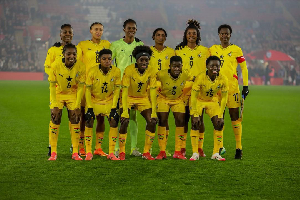The Asokore Rural Bank Limited at Asokore in the Sekyere East District of Ashanti Region has posted a satisfactory growth in all financial indicators in the 2012 year under review.
The bank posted a net profit of approximately GH¢264,387 in the 2012 period under review as against a little over GH¢233,318 in the previous year, representing a satisfactory growth of 13.3%.
The bank recorded total deposits of about GH¢9.2million in 2012 as against a little over GH¢7.6million in the previous year representing 24.9 % growth. This was due to the intensified mobilisation drive pursued by directors and management coupled with ever-increasing public confidence in the operations of the Bank.
The Chairman of the Board of Directors Mr Eric Appiah-Badu announced this at the Bank’s 26th Annual General Meeting of shareholders held last Saturday at Asokore in Ashanti. According to him, the bank operated in a domestic condition that witnessed a GDP growth of 7.1%. A budget deficit of GH¢8.7billion was recorded in 2012, resulting in an overall fiscal deficit to 12.0% of GDP against a target of 6.7%.
The year 2012 started with an inflation rate of 8.70% which reduced further to 8.60% in January before increasing continuously to 8.50% in August. The rate then started declining again until October, 2012 (9.20%). At the end of November, the inflation rate had increased to 9.30%.
In spite of the challenges mentioned, the bank performed creditably well during the year under review.
The bank’s shares issued to date increased by 3.5 percent from about 2.7 million in 2011 to approximately 2.8 million, while earnings per share decreased by 18% from 0.077 in 2011 to 0.063 in 2012. Total Assets per share dropped from 3.33 in 2012 to 3.22 recording a decrease of 3.3 percent. Dividend per share increased by 13.33%, from GH¢0.015 in 2011 to GH¢0.017 in 2012.
Total deposits increased by 24.9% from GH¢7,361,306 in 2011 to GH¢9,197,306 in 2012. Time deposit, Savings account, Current account and Susu deposits went up by 22.38%, 19.60%, 54.83% and 13.0% respectively.
The bank’s investment in Ghana Government Treasury bills and placements with Discount Houses increased by 15.24% from GH¢4,168,014 in 2011 to GH¢4,773,067 in 2012. A total of about GH¢1.9million loans, overdrafts and other advances were granted as against approximately GH¢1.8million in the previous year, showing a positive variance of GH¢137,870.
The bank started its Microfinance programme in 2011 and had taken off earnestly in the year under review (2012). In 2012, the programme disbursed GH¢495,400 to 462 clients of which 434 are women forming about 94%. Repayment of the loans has been encouraging, having a portfolio at risk (PAR) of 8.42%.
The programme has also been rolled-out at Effiduasi and Asokore and their environs, and traders in those areas hved been encouraged to take advantage.
The bank continues to offer assistance to communities and institutions within its operational territories in terms of community development projects, and a substantial amount was spent in this direction. Areas that benefitted included educational institutions, district Farmers’ Day celebration, and scholarship awards to needy but brilliant students hailing from or resident in the bank’s catchment areas.
The Board Chairman in his concluding remarks expressed his sincere appreciation to shareholders and valued customers for their loyalty, priceless support and patronage during the year. He also thanked the hard-working management and staff for their continued dedication, commitment and diligence.
The General Manager, Mr. Samuel Agyapong Ansong in an interview with Business & Financial Times said for the bank to achieve its stated goals for the coming year, it will continue to pursue prudent policies aimed at maximising some profits and giving exceptional customer service: specifically, to pursue massive share and deposit mobilisation, focus on quality customer services, and invigorate its Micro Finance Scheme.
Other activities, according to the General Manager, will include strengthening internal control, sustaining development of capacity for the Bank’s human resources, as well as doing well to control expenditure and plug income leakages.
Business News of Wednesday, 4 December 2013
Source: B&FT













